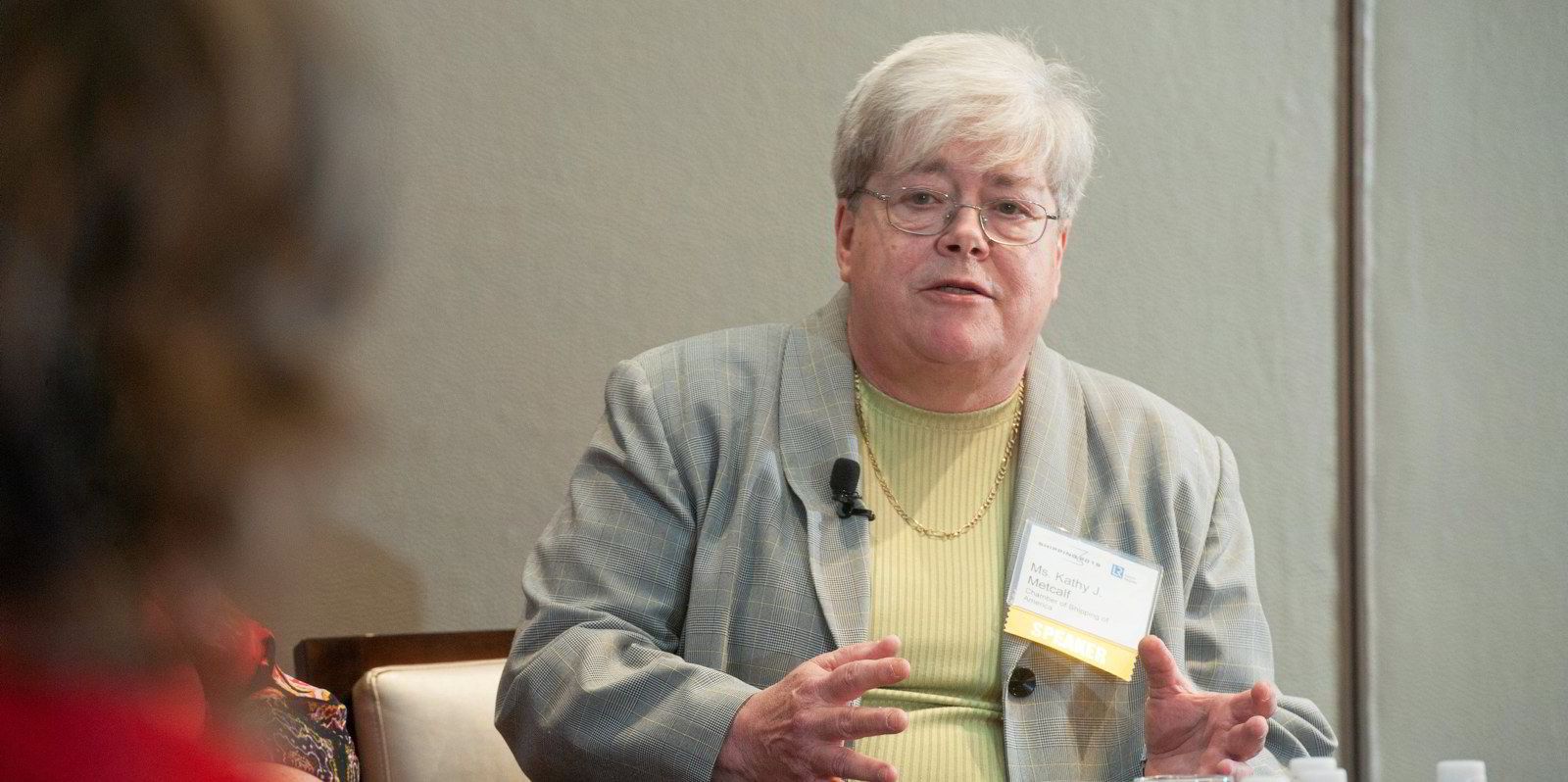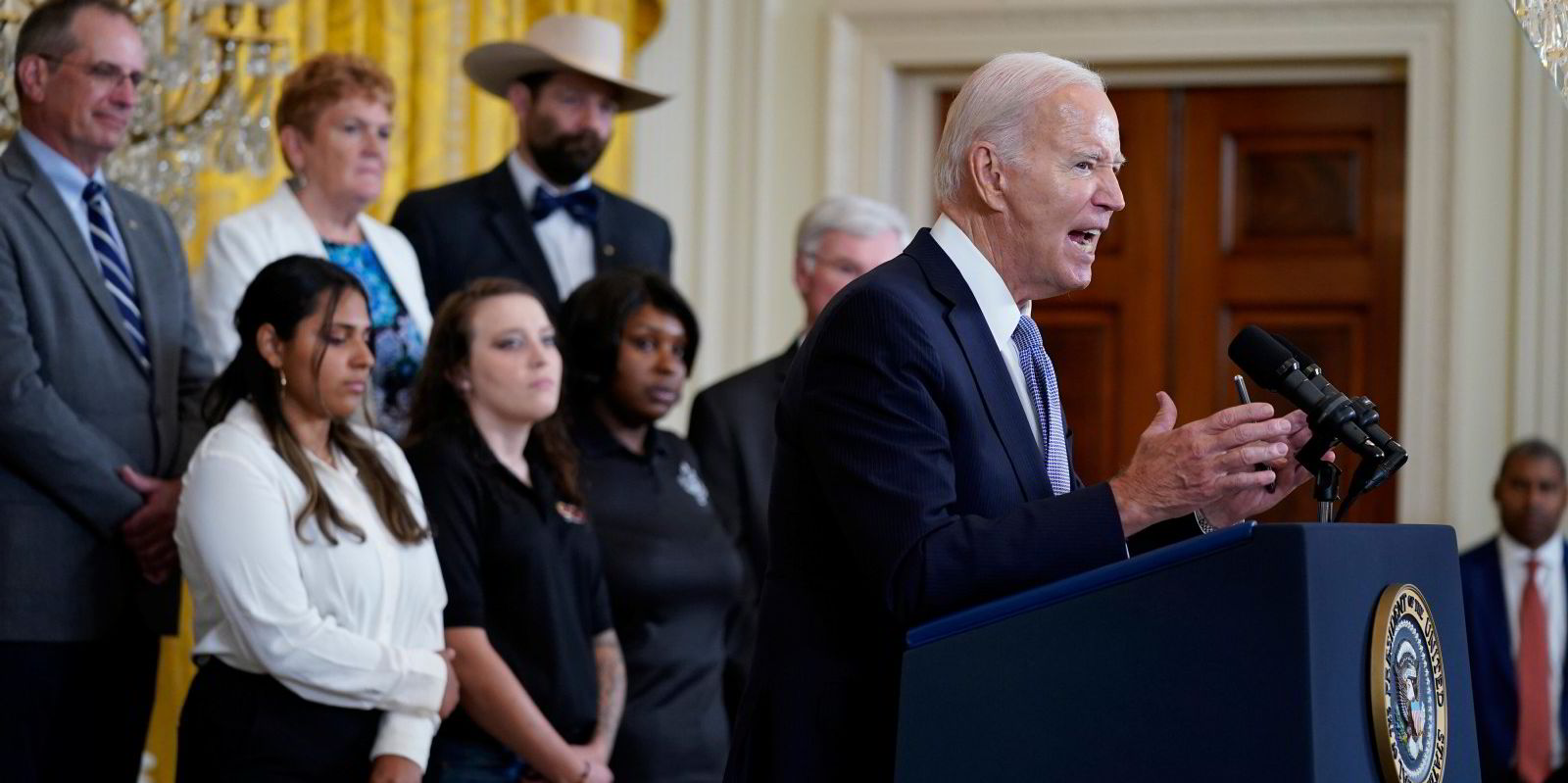The Biden Administration has been celebrating the one-year anniversary of the Inflation Reduction Act, the US law that included some $783bn in spending on green energy and climate change.
But the legislation, as well as other moves by Washington to open America’s wallet for decarbonisation, has yet to make its way to tackle shipping’s greenhouse gas emissions, at least not directly and not yet.
Sean Pribyl, a Washington DC-based lawyer for Holland & Knight who focuses on maritime and energy matters, told the Green Seas podcast that the US government has unleashed a large sum of money for decarbonisation and that the White House has made it clear that it wants shipping to be included.
But his firm and the Blue Sky Maritime Coalition, an industry group aimed at pursuing decarbonisation of the sector, are seeking language in the legislation that is fit for shipping.
“The issue that we’re finding is that when this was developed, there was not a clear vision of how to include maritime assets, maritime stakeholders, into the IRA language,” he said, referring to the law by its acronym. “And what we found is it gets near the target of what the maritime industry would need to access funds, but we’re finding we’re just missing some key language.”
A major share of the Inflation Reduction Act cash is managed by the Department of Energy’s Loan Program Office.
Pribyl said the office does want to get funds to the shipping sector, but it does not have the maritime expertise that is found at agencies like the US Maritime Administration.
The office has yet to award a loan for a vessel-related project, but such projects could qualify for the Advanced Transportation Financing programme for technologies that reduce greenhouse gas emissions or the Title 17 Clean Energy Financing for vessel supply chain and construction, government sources said.
$139bn in applications
The office has 157 applications for $139bn in loans across all sectors.
But shipping companies also want clear guidance on what carbon rules they will be expected to follow, as well as clarity on future fuels.

The International Maritime Organization recently adopted a goal of net zero by around 2050 for the shipping sector, and the Biden administration was in favour of even more ambitious interim targets.
But it will be up to the Environmental Protection Agency (EPA) to implement new IMO rules in the US.
For US-flag ships that operate in domestic trades protected by the Jones Act, knowing what the rules will be is key.
“Part of why we as an industry are looking to the government to provide standards is that that provides reliability for investment,” said Pryble, who noted that Jones Act ships have lifespans of up to 50 years, even longer on the Great Lakes.
Kathy Metcalf, chief executive of the Chamber of Shipping of America, said her group does not see the Inflation Reduction Act as a big source of funding.
A $3bn pot of money that the EPA will administer for green technology in ports, for example, appears likely to fund land-based efforts.
Outside the law, MARAD has a tiny budget for its Maritime Environmental and Technical Assistance Program. The Biden Administration has requested just $8.5m for the next fiscal year.
What fuel?
But when it comes to the Energy Department’s pile of money, Metcalf said the chamber’s members are not sure about what is the fuel of the future in their trades. The organisation is made up of shipowners with a US base of operations, which includes US-flag companies and international companies.
Metcalf said members like TOTE and Matson have invested heavily in LNG and have their fuel supply chain sorted out, but for other shipowners, the fuel of the future is less clear.

“None of my members that I’m aware of have sought to access those funds because a number of the members are still sitting there trying to figure out which way are we going to go,” she said.
“It’s hard to go after funds if you’re not sure which fuel you think is going to serve as your trade patterns.”
But for Metcalf, the US is not likely to lead the way in funding decarbonisation for global shipping.

The IMO is currently working on policy tools to push shipping towards its new net zero targets, and the measures under consideration include putting a price on carbon and using those funds to pay for projects that cut the industry’s greenhouse gas emissions.
“For global decarbonisation, I think the IMO system is the only way to go. Unfortunately, when you get to the UN agencies, you have a lot more politics, and we get enough politics at the national level,” said Metcalf, who favours a levy on bunker fuel.
“But it will be fairly easy to establish the method by which the collection is made.”



